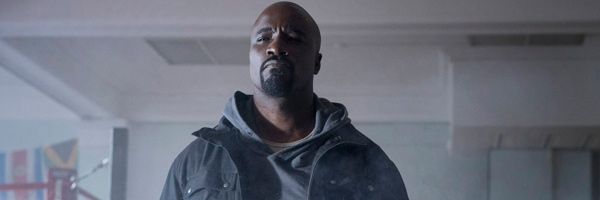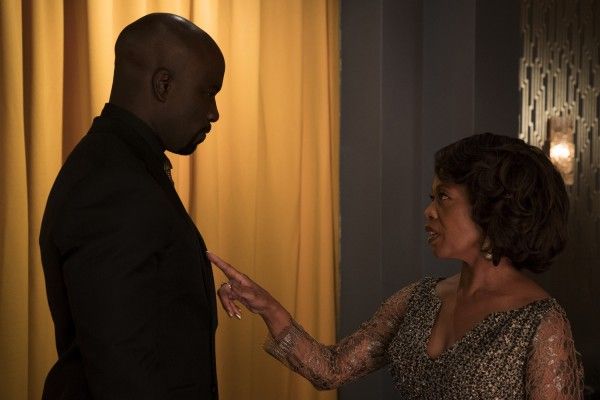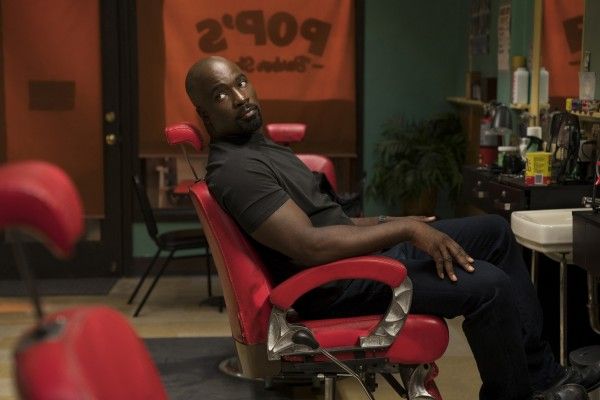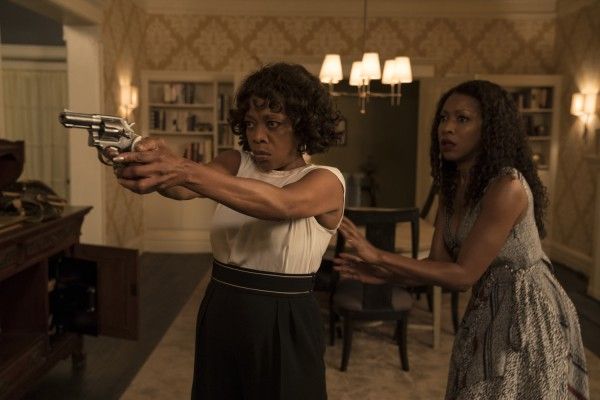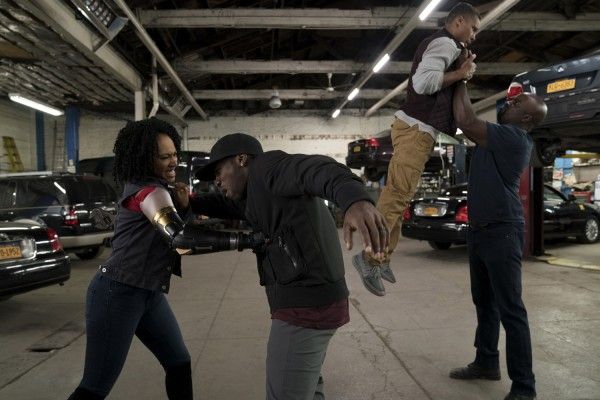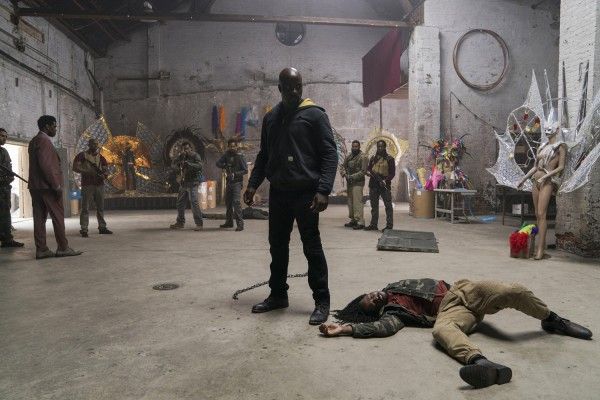Warning: Spoilers for the Luke Cage Season 2 finale, "They Reminisce Over You,” are below.
What a journey! Luke Cage really ramped things up in its final three episodes, starting with the reveal of Bushmaster’s past connection with Mariah, as well as Misty’s past dealing with Scarfe and the red flags she should have picked up on (and how she needs to be less like him). But the real magic was saved for "They Reminisce Over You,” the season finale that packed in more story that the rest of the entire season combined. Or at least, it felt that way. The gang warfare that emerges after Mariah is taken off the streets could have been more deeply explored, building up the players that are trying to get a piece of Harlem. But its main purpose was to present Luke with a choice: you can clean up the streets, but to do so, you have to become king.
There were a lot of really interesting dynamics throughout the finale, starting with Mariah in jail (which is the best Mariah, as far as I can tell). She double-crosses, takes control, and isn’t afraid to get her hands dirty, while also spouting off some fantastic, snarky quips to Luke during his visit. But it was short-lived, after Tilda poisoned her during her own visit (in a move that fans of Game of Thrones were surely not shocked to see). However, Tilda betrayed herself by calling Mariah “mother” instead of “mommy,” which caused Mariah to change her will and put Luke on the path of crime boss by giving him control of Harlem’s Paradise before she passed.
Throughout the second season, Luke struggled with the war inside himself over what kind of hero he wants to be, and what kind of hero he needs to be. It broke apart his relationship with Claire, after he told her that “brutality gets shit done,” and lost his temper in an argument they had over, well, him losing his temper. He had already started going down a dark path when he laid his beatdown on Cockroach, which Claire feared he enjoyed too much. His father’s retelling of the Cherokee tale about the good and bad wolves inside you (the one that wins is the one you feed) really resonated with her, and rightfully so.
And yet, one can also see Luke’s point. Brutality is what these gangsters and drug kingpins understand. Luke gives it to them in their own language, like when he went into the office of the Italian crime queen and took out all of her lackeys. Where things become a little more muddled is when that “might as right” and “I can’t be bought” turns into business and backroom deals. Luke is willing to negotiate with them, calling himself a sherif or a diplomat to Mariah. It’s a justification in those early days (“I’m the only one who can make Harlem great again!”), the same one he uses to explain his position to D.W., who counters, “if you’re the boss of all crime, that makes you a crime boss.”
"They Reminisce Over You” doesn’t show us the process that Luke went through between declaring that the Paradise should be burned down versus restoring it as the nexus of all business in Harlem (“You can’t rule no kingdom from a barbershop,” as Mariah says), but it was an essential transformation built on these earlier justifications. And if there was still any question about his motivations, Misty’s visit to the Paradise tells us the truth. Luke is putting the heads of the cartels at his VIP tales in the club, and gives an appreciative nod to the artists singing a song about him that might as well be medieval knight’s ballad. He has changed, whether he realizes it or not — just as Mariah predicted.
Then again, maybe he does know exactly what he’s doing, and knows it’s not right. When Sugar (now his right-hand man as he transforms into “Luke Corleon”) tells him Claire is there, Luke says to send her home. He can’t face her knowing what she’ll say about his choices. It could be because he knows what she would say is right, or because he wants to remain firm in his decision because he believes that he’s right. Harlem is safe, the streets are quiet. Misty and the police force can take care of the written laws, and he takes care of the unwritten laws. Is that realistic, though? Or just wishful thinking?
All of this is really, really interesting, and sets up a great conflict for Season 3 — it’s just that the show could have used more of it in Season 2. The Bushmaster storyline flamed out, and Tilda’s transformation never really felt organic or frankly all that interesting (and yet as the finale showed us, it could have been!) But then there was Luke, taking down the Biggie painting with the crown and replacing it with Muhammad Ali throwing a punch — an apt symbol — while also getting a starburst/halo around his head.
As Luke’s father (played by the great Reg E. Cathey, rest in peace) says in a voiceover to close the season: “What comes out under pressure is what defines being a man, defines being a hero.” So far, for Luke, that means using might for right. But can it last?

